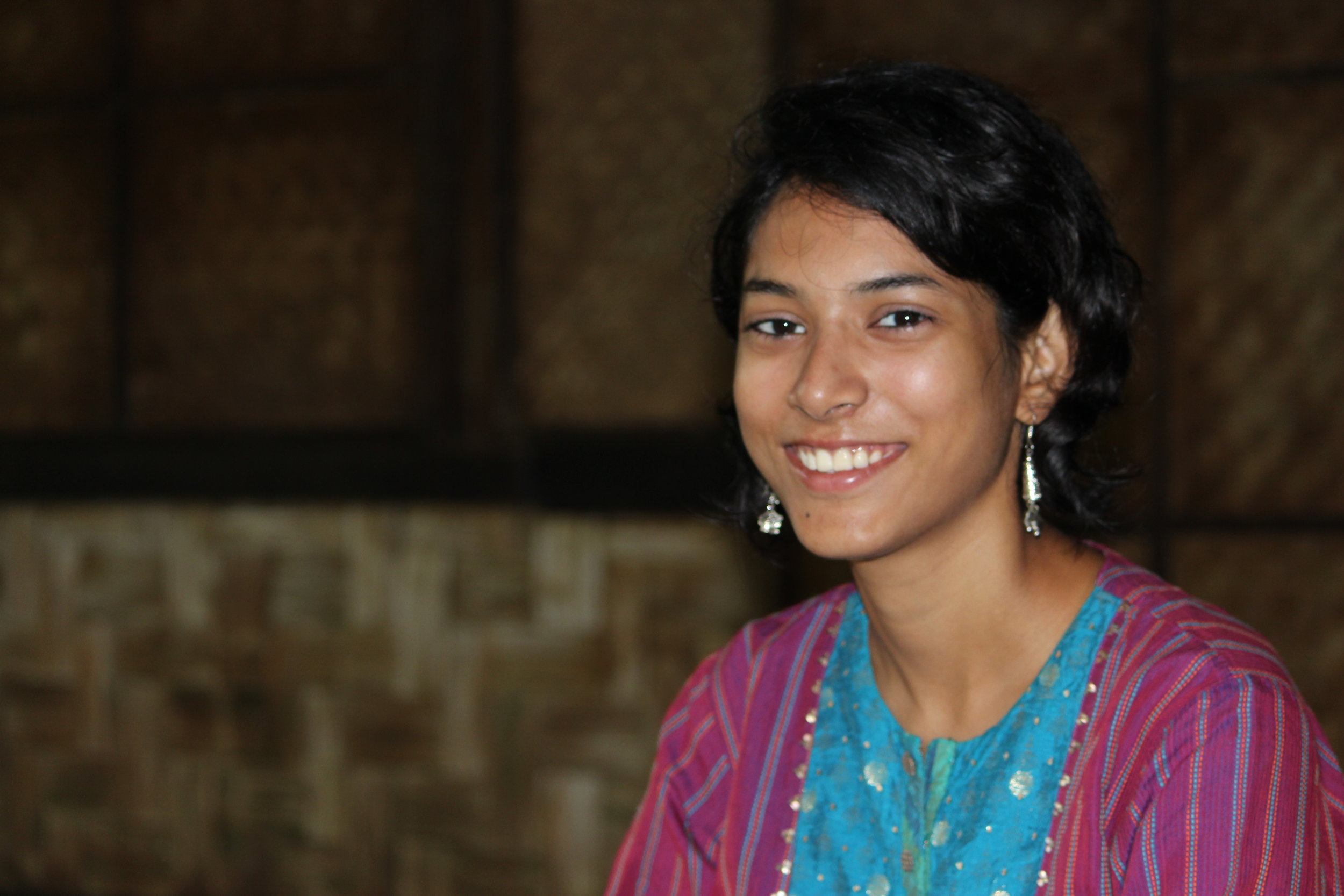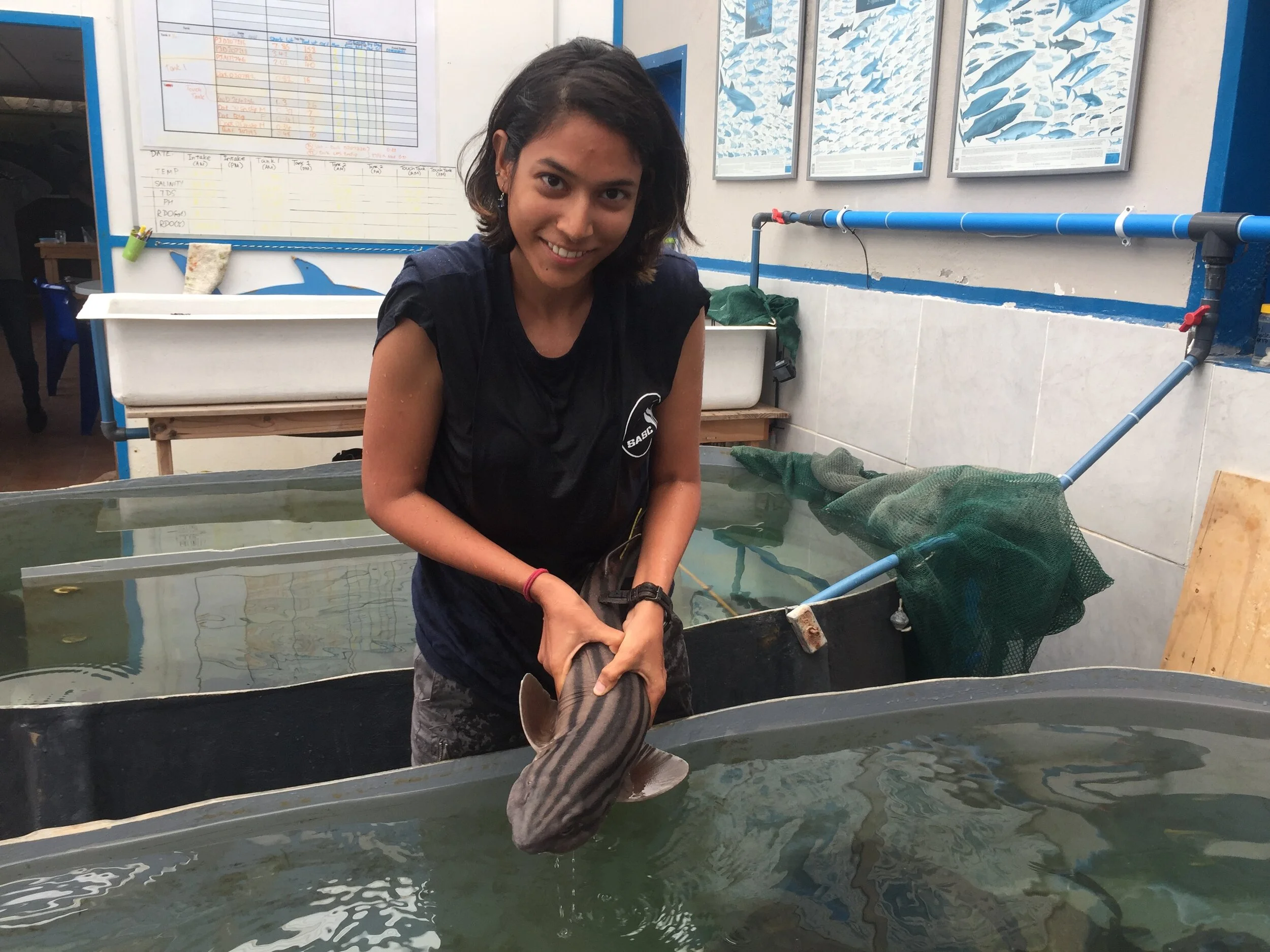RSIF Interns 2018: Zoya Tyabji and Ram Mohan
The RSF Interns for 2018 are Zoya Tyabji and Ram Mohan. Zoya will be swimming with sharks in South Africa while Ram will be flying amongst bats in Panama. Both are equally passionate about the environment and hope to apply their learnings and experiences to the conserving the rich ecosystems of India.
We wish them the best of luck in their endeavors.
Zoya Tyabji
The sea, once it casts its spell, holds one in its wonder forever – Jacques Cousteau
You only have to take a walk on the coasts or take a dip in the sea to realize how interdependent we are on the sea and all its inhabitants. Vast stretches of beaches, variety of fishing communities that live along the coast, uncanny landscapes and myriad marine life that inhabits the Indian coastline can be mesmerizing for those who seek it.
Marine life and the coast for have mesmerized me as long as I can remember. Having grown up catching crabs on the shore, watching the fish sheltered in the tidal pools when the tide recedes, and in turn attracting predators; a lot of ecological concepts read in textbooks came alive for me. However, in the past 20 years, the coastline has gone through dramatic changes. The same tidal pools where I spent hours watching fish in and out of crevices are now littered with plastic and nets, the beaches where I used to make sand castles are now covered with oil and there are carcasses of dead animals being washed from the sea.
To experience the marine magic further, after pursuing my masters, I worked in the Andaman Islands. Here I lived in a secondary tropical rainforest, glided over psychedelic coral reefs and reef associated organisms. But alas, even in a paradise such as this isolated island, the impacts of humans were evident. I experienced the bleaching of coral reefs during the 2016 El Nino event, where all the corals turned a ghostly white; interacted with fishing communities whose livelihood was the same dwindling fish they persisted in catching; and last but not the least, a lack of waste management with massive unseen effects for the ecology of the islands.
My venture into exploring these outlooks on marine conservation thus began. For the past year and a half, I have been working on assessing the conservation status of elasmobranchs in the Andaman Islands, India. To further hone my research methodologies, I won the ‘Women in Shark Science’ competition held by South African Shark Conservancy (SASC) resulting in a sponsored internship with them for a month. I am thankful to the Ravi Sankaran Inlaks Fellowship for supporting this internship. I am excited for opportunity to learn about shark based biological studies, ecological monitoring, morphometrics and shark husbandry. Additionally, I look forward to building a network of peers and experts who I hope will mentor me and help me further elasmobranches research and conservation in India.
Ram Mohan
I would consider myself lucky to have got all the necessary experiences required to trigger the passion to observe and admire natural landscapes and its inhabitants. Born in Kerala and brought up in Gujarat, I was fortunate to have grown trekking, exploring and birdwatching in two distinct eco-regions. Other than activities like birdwatching and trekking I had keen interest in music and got myself trained in the musical instrument Santoor.
Although I spent a childhood spent in and around urban wilderness, the turning point in my career came along with the short periods of field exposures I got between 2016 and 2018 in the lap of the Himalayas. I volunteered with the Wildlife Institute of India in 2016 to work on camera trapping mammals in the Askot Wildlife Sanctuary in Uttarakhand and conducted my masters’ project with the Wildlife Trust of India in 2017 on the diet of the mountain ungulate, Markhor in Kashmir. These two years gave me some of the best wildlife experiences of my life. I had some of the best sightings of the rare denizens of the mountains as well as developed my passion for studying bats while I volunteering with researcher Rohit Chakravarty on his bat project in Uttarakhand in 2016.
I am currently pursuing my Masters in Wildlife Conservation Action at Bharati Vidyapeeth Institute of Environment Education and Research and am in my 4th semester internship at the Indian Institute of Science Education and Research (IISER), Pune to study the community ecology of bats in the Himalayas.
The learnings from my internship programme at the Smithsonian Tropical Research Institute in Panama will enable me to assist bat populations in forest-plantation mosaic habitats that suffer roosting habitat destruction in India. This shall be achieved by providing them with artificial roosting sites. Bats still remain highly ignored and legally unprotected in our country. I hope to improve people’s perception of bats by showcasing their important functions and services to the ecosystem.








